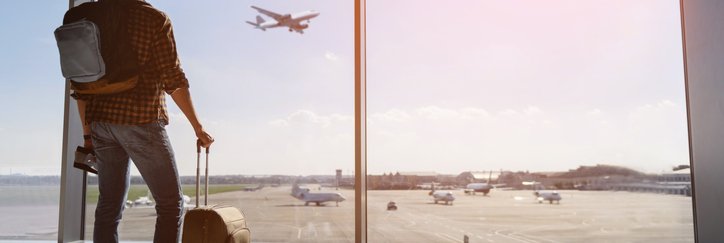Delta Gave Me $3,000 to Give Up My Seat. Here's How I Could've Gotten More
KEY POINTS
- Delta downgraded a recent flight to Amsterdam and needed 32 people to give up their seats voluntarily.
- After no one gave up their seats, Delta increased their initial offer by $300, and it ended up reaching $3,000 before I gave up mine.
- Because airlines want their planes to leave on time, the longer it takes for them to get volunteers, the more money they will offer.
On Tuesday, May 23, I sat at the Hartsfield-Jackson International Airport in Atlanta anticipating what I thought would be a nine-and-a-half hour flight to Amsterdam, followed by a quick layover and three hour flight to Bucharest. By the end of that same day, I walked out of the airport with $3,000, a hotel voucher for the Renaissance, a $30 meal voucher, and a plane ticket for the same route to Bucharest scheduled for the next day.
Now, I've heard of travelers giving up their seats for $500, sometimes even $1,000. But never have I been personally offered to give up mine. I was shocked when Delta offered me $3,000 to give up my seat, but truthfully -- I could have gotten more.
How I got $3,000 from Delta
About 30 minutes prior to boarding, Delta announced the plane to Amsterdam had been downgraded and they needed 32 volunteers to give up their seats. They would give $1,200 to whoever volunteered, they said, which could be used to buy gift cards to various places, like Amazon, Starbucks, Delta, Uber Eats, Target, and more.
$1,200 was generous. But since the ticket to Bucharest cost about $1,700, I didn't find it initially compelling.
Neither did anyone else, for no sooner had the Delta gate agents announced it than they returned with a higher offer of $1,500. Little by little people gave up their seats, but not enough to count 32, and Delta kept raising the offer by $300 increments to entice more travelers.
By the time the offer reached $2,500, I was ready to throw in the flag. But I was also traveling with a group of nine -- including my mom -- and didn't want to separate from them. We had a tight itinerary and were meeting friends in Bucharest at a specific time. This tight schedule, however, was also a source of anxiety. Our flight to Amsterdam had already been delayed by a half hour, which was narrowing the layover time we had to catch the flight to Bucharest, and since no one seemed interested in staying in Atlanta for the night, it appeared the flight would be delayed even longer.
When Delta announced it was raising its offer to $3,000, my mom and I decided to take it. We were shocked it had gotten that high, but imagine our surprise when Delta boosted the offer to $4,000 to entice its final passengers to give up their seats. If we had waited only a few minutes longer, we would have earned $1,000 more.
How to get the most out of an airline offer
Many experts are predicting that the 2023 travel season will be busier and more crowded than last year. In fact, according to TD Cowen, cited by Bloomberg, roughly 275 million people are expected to travel between May 25 and Sept. 4, which is roughly 19% higher than 2022 and 7.4% higher than 2019.
Higher travel volume increases the likelihood of overbooked planes, or, as in my situation, planes that are downgraded a few hours before the flight. That means, if you're flying this summer, there's a chance you can find yourself in an auction for your seat.
Here's my advice -- don't take the airline's first offer. At the very least wait until the second, possibly the third or fourth if you notice interest is lacking. If the airline needs your seat more than you do, give them some time to offer a price that makes the inconvenience worth it.
In my case, $3,000 was plenty. Delta put us up in the Renaissance, and they paid for our dinners, too. I ended up exchanging the $3,000 for $1,000 at Delta, $1,500 at Amazon, and $500 at Uber Eats. It not only paid for my trip to Romania but gave my personal finances some extra breathing room this month.
Our Research Expert




